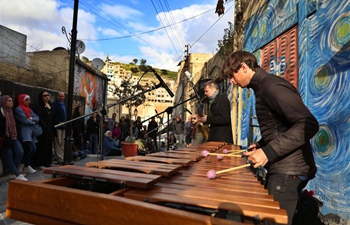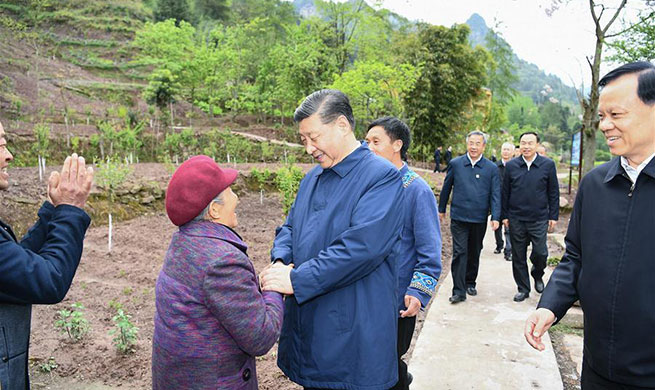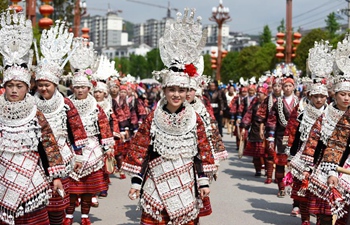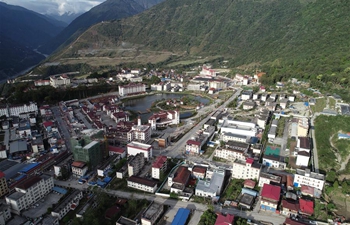HAVANA, April 20 (Xinhua) -- U.S. foreign policy towards Latin America shows that an imperialist offensive is underway in the region, a Cuban political observer told Xinhua in a recent interview.
"Washington has launched an offensive designed in the (19)80s as part of the so-called Neoconservative Revolution, which advocated taking action to recover the relative loss of (U.S.) domination over the region," said Juan Angel Cordero, a member of Havana's International Policy Research Center.
The United States is wary of the newly emerging powers that already have a significant presence in the region, "and they see that as a threat to national security on the understanding that its area of influence cannot be disputed by other global powers," Cordero noted.
With U.S. President Donald Trump at the helm, a conservative White House is taking a more aggressive approach in Latin America, where left-leaning governments rose to power over the past decade and a half.
"Faced with this dilemma, they began to undertake a series of measures to put a stop to their relative decline in dominance, and the Trump administration has resorted to every means at its disposal," Cordero said.
"Washington's response is classic and has to do with the Monroe Doctrine, which holds that the Americas are for the Americans," Cordero said, referring to the policy named after former U.S. President James Monroe.
Over the years Latin American countries have learned to protect certain national interest, said Cordero. This explains why the Trump administration has decided that the most expedient way to recover its influence in the region is to use big stick diplomacy.
"That's why there is an offensive for regime change designed against progressive currents in Latin America, namely Venezuela, but also Nicaragua and Cuba," said Cordero.
Big stick or "hard power" tactics include economic, diplomatic, and psychological warfare as well as media manipulation, with the aim to bring about regime change, he explained.
According to Cordero, the Mexico-U.S. ties illustrate Washington's new tack.
Under President Andres Manuel Lopez Obrador, Mexico has proposed bilateral cooperation with the United States to improve life in poverty-ridden southern Mexico and northern part of Central America as a way to stem the wave of undocumented migrants heading to the United States.
Meanwhile, the U.S. response has been to spend more money on sending migrants back to their countries of origin, Cordero said.
It appears that the United States is more interested in preserving its traditional role in Central America's Northern Triangle -- comprising Guatemala, Honduras and El Salvador -- of offering certain types of aid in exchange for ensuring its military presence in the region, he said.













